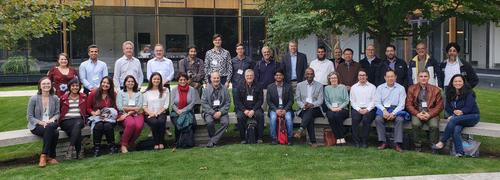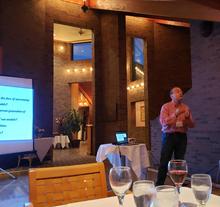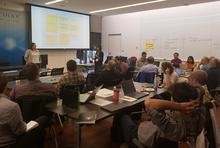On October 7 & 8, researchers and policymakers from across the Great Lakes basin came together in Waterloo to discuss the current state and future approaches to integrated lake-watershed models, and how these models can inform science policy. Representatives from academia, governments and consultants from both the United States and Canada participated.
The workshop, hosted by the Waterloo-based Lake Futures project which is part of the Global Water Futures program, opened with a keynote presentation from Dr. Don Scavia from the University of Michigan entitled “Using multiple watershed and lake models to guide setting and achieving nutrient loading targets”. Dr. Scavia’s presentation highlighted the value of using multiple models, suites of best management practices, and broad stakeholder engagement in this type of research.
The workshop included a number of speakers and panel discussions that addressed both watershed and lake modelling and included contributions from several Water Institute members including Dr. Nandita Basu and Dr. Philippe Van Cappellen.
The hope is to inform current discussions about the use of computer models in adaptive management, at a time when Canada and the United States are developing a plan for tracking progress towards reducing nutrient runoff that feeds algal blooms in Lake Erie. Organizers are currently writing a workshop outcomes report and thinking about ways to continue to strengthen connections between lake and watershed models as well as improve international coordination.
Read more about the Integrated Lake-Watershed Modelling Workshop.

Group photo of participants of the Integrated Lake-Watershed Modelling Workshop held at the Balsillie School of International Affairs.

